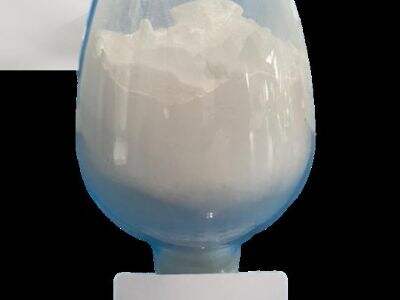What are Polyester Resins?
Polyester resins are a type of material that is used in various industries, including automotive, furniture, and some types of textile manufacturing. They are also very strong, which means they can hold things together very tightly. Polyester resins also do not shrink a lot when they are drying. This is important as it retains the shapes of the things that are made with them. Polyester resins are also great at blocking electricity from passing through it. This is what is called electrical insulation, and it helps protect people. We use organic metal catalysts to make these polyester resins. These catalysts play a critical role in enhancing the reactivities of the resins in a wide variety of scenarios.
Why Are Organic Metal Catalysts Beneficial for Polyester Resins?
They speed up a reaction when we incorporate organic metal catalysts into polyester resins during the manufacturing process. This reaction leads to hardening of the resin. In many cases particularly in manufacturing, when the resin is fast to cure, we can use it in a timely manner. This also creates stronger polyester resins to withstand harsh environments. For instance, these resins turn more brittle, so they can withstand heat, which is crucial in regions that get too hot. They also gain more chemical resistance, which comes in handy in an industry where resins might encounter harsh materials. Further, the weather can be hard on materials, but with organic metal catalysts, polyester resins can endure rain, sun and other outdoor conditions better. In addition, these catalysts enhance the adhesion of the resins to other substrate surfaces. This makes them a very useful component for many products, including paints, adhesives and composite materials.
Organic Metal Catalysts with Eco-Friendly Features
However, people have become increasingly aware of the dangers of using harmful chemicals in their products in the past few years. This concern has increased, especially in the case of polyester resins. As a result, scientists and manufacturers are seeking safer alternatives. Organic metal catalysts are one of these safer alternatives. This is ideal because these catalysts are non-toxic and environmentally friendly. This is what makes them a far better alternative for making polyester resins that are safe for everyone. It is important to use eco-friendly materials as it is good for our planet and keeps our communities healthy.
Emerging Trends in Organic Metal Catalysts
There are several many interesting developments going on with organic metal catalysts. One trend we’re seeing is the creation of new types of catalysts that further accelerate polyester resin curing. This is significant as it allows for more efficient manufacturing. It can be time and money-saving when things can be made in a better time. Another interesting trend is with the use of nanoparticles, which are small particles. Also, polyester resins' respective properties could be improved even more by adding these nano-particles with the organic metal catalysts. Adding nanoparticles helps to further strengthen and toughen the resins. That translates to the finished goods produced with polyester resins being able to last longer and perform better.
Organo-Metallic Catalysts Developments
Lingshi is a leading company in the field of new breakthroughs in the application of organic metal catalysts for polyester resin. They have spent significant effort building an extensive portfolio of catalysts that are highly effective at enhancing polyester resin performance and Properties. These catalysts are green and nontoxic that can also accelerate the process greatly in an ecofriendly way. For instance, Lingshi has created catalysts that can cure, or harden, polyester resins as much as 50% faster than before. The ability to make faster and cheaper products is beneficial for many industries.
Lingshi started developing nano-catalyst, a special type of catalyst. The nanocatalyst consists of small particles that can readily diffuse into the polyester resin matrix. This makes it help form a more resilient and thicker substance. The nanocatalyst is also used to make polyester resins more resistant to heat, chemicals and poor weather. This allows products formed with these resins to be used in far more climates and situations without failing or losing effectiveness.
Conclusion
Last but not least, organic metal catalysts play a crucial role in producing polyester resins. The efforts and breakthroughs of associates like Lingshi lead organic metal catalysts to become more efficient and safer choice to form polyester resin. One of those technologies is the development of new kinds of catalysts and the use of new technologies like nanotechnology to form stronger, more durable and safer polyester resins. The aforementioned properties enhance the efficacy of the resins in multiple industries and also assist in manufacturing robust products that protect people and dwellings over years.














































